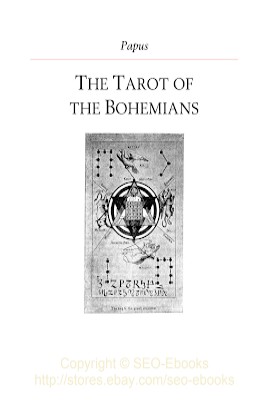The Way of Tarot 2
I first met the cards when I was seven years old living in Tocopilla, a small Chilean port town nestled between the glacial Pacific Ocean and the mountainous plateaus of Tarapaca, the driest region on Earth, where not a drop of rain has fallen in centuries. The town merchants would close up shop at noon until five every afternoon because of the extreme heat. My father, Jaime, would lower the metal shutter of his Casa Ukrania [Ukraine House]—which sold feminine undergarments and household items—and go play billiards at Crazy Abraham’s, a Lithuanian Jewish widower who had washed up here under mysteri- ous circumstances. In this warehouse where women never set foot, the normally competing merchants declared a momentary truce and gath- ered around a green table where they showed off their virility by mak- ing cannon shots. According to Jaime’s philosophy a child’s brain was already formed by age seven, and should be treated as an adult. So on my seventh birthday he allowed me to go with him to play billiards. The deafening noise made by the balls striking each other and the white and red trails they left across the olive-green felt failed to impress me. What did catch my eye and fascinated me was a card castle. Crazy Abraham was obsessed with building large castles out of cards. He would leave these huge and imposing constructions, no two of which were ever alike, on the bar counter far from any drafts until he got drunk and intentionally knocked them down, only to immediately begin building another. Jaime would mockingly tell me to ask the “loony” why he did this. Smiling sadly, he would give a child the answer he did not wish to give to adults: “I am imitating God, little one, the one who creates us, destroys us, and with what’s left of us, he rebuilds.”
As an antidote to the boredom of provincial life, my father would invite a group of friends over to play cards for hours on Saturday eve- nings and Sundays after lunch while my mother, Sara Felicidad, the only woman present, served beer and canapés, like a shadow. The rest of the week the cards slept under lock and key imprisoned in a dresser. These decks fascinated me, but I was forbidden to touch them. According to my parents, they were only for adults. This gave me the idea that cards, wild beasts that could be tamed only by a wise man—Jaime in this instance—had magical powers . . . As the players used beans instead of chips, every Monday my mother, perhaps to release the pain she felt at being excluded from the game, boiled them for soup, which I would slurp down with the feeling that it was giving me some of their powers.
Being the son of Russian immigrants, my physical appearance was quite different from that of the native Chileans and left me without any friends. My parents were wrapped up for ten hours a day in the Casa Ukrania and had no time for me. Weighted down by the silence and solitude, I began examining the furniture in their room in hopes of finding a detail that would would reveal the faces hidden behind their masks of indifference. In a corner of the closet, between the perfumed clothes of Sara Felicidad, I found a small rectangular metal box. My heart began beating faster. Something told me I was about to receive an important revelation. I opened it. Residing inside was a Tarot card called “The Chariot.” It showed a prince driving a flaming vehicle. Tongues of fire had been added with lines of black ink and colored with yellow and red watercolors. Who had gone to the trouble to transform the original drawing by adding flames? Lost in my thoughts, I did not hear my mother coming in. Caught in the act, I confessed my guilt and handed her the card. She took it from me reverently, clutched it to her chest and broke out sobbing. When she recovered her calm, she told me how her late father had always carried this card in a pocket of his shirt, close to his heart. He had once been a Russian ballet dancer who was over six feet tall and had a leonine mane of blond hair. He fell in love with my Jewish grandmother and followed her into exile, although under no obligation to do so. In Argentina, clumsy as he was in every- thing concerning the details of everyday life, he climbed on top of a barrel full of alcohol to try to adjust the flame of a lamp. The cover of the container gave way, and he fell into the alcohol, still holding the oil lamp in his hands. The liquid burst into flames, and my grandfather was burned alive. Sara Felicidad was born one month after this atro- cious death. One day, her mother, Jasche, told her how she had found the card, intact, among the ashes of her beloved husband. One night after the burial, the flames of The Chariot appeared without anyone having drawn them. My mother harbored no doubt about the veracity of this story. In my own childish innocence, I believed it too.


 Đang tải dữ liệu
Đang tải dữ liệu








Chia sẻ ý kiến của bạn